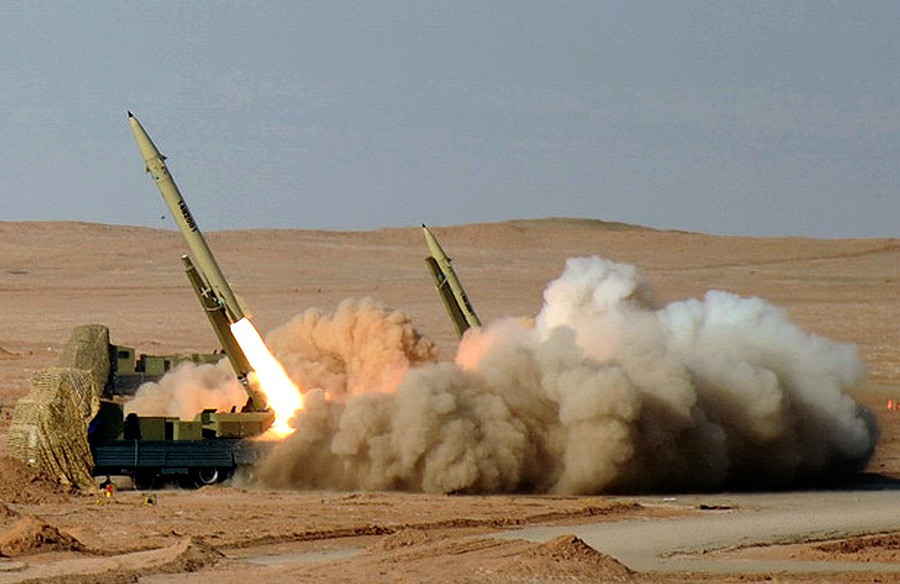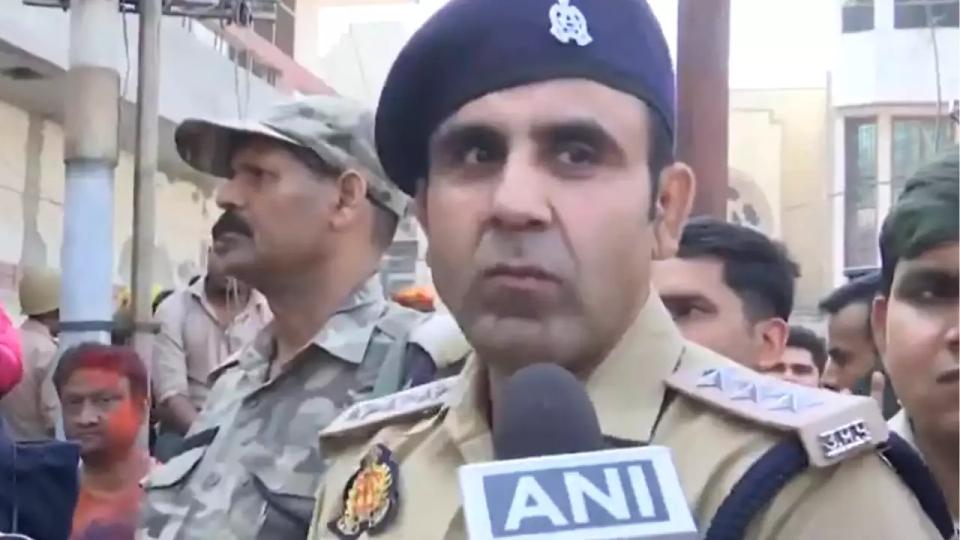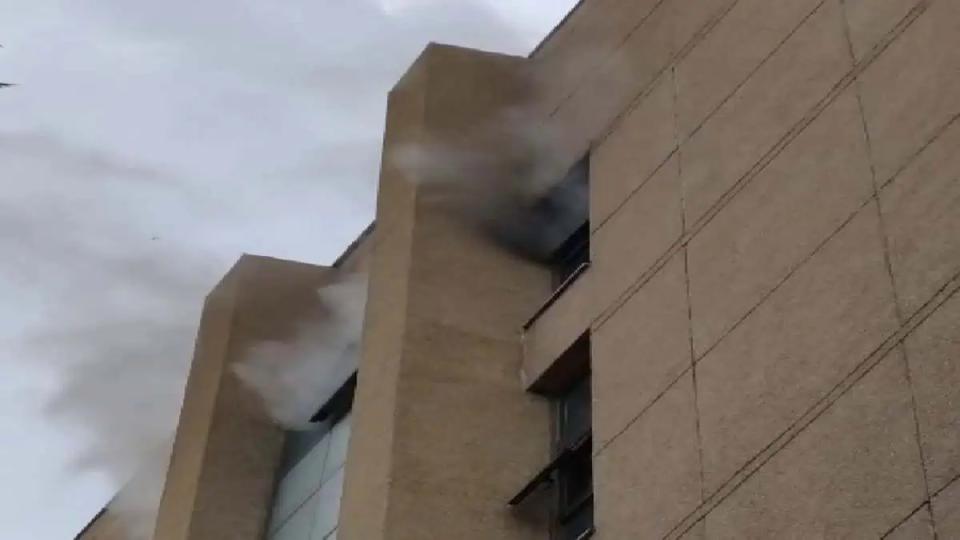7 killed as Pakistan conducts military strikes against 'terrorist hideouts' in Iran
Fri 19 Jan 2024, 11:00:52

Islamabad: Pakistan on Thursday conducted "precision military strikes" against what it called "terrorist hideouts" in Iran's Siestan-Balochistan province that killed 7 people, a day after Islamabad recalled its ambassador from Tehran and suspended all planned high-level bilateral visits in the wake of Iranian missile and drone strikes in Balochistan.
"This morning Pakistan undertook a series of highly coordinated and specifically targeted precision military strikes against terrorist hideouts in Siestan-o-Baluchistan province of Iran," the Foreign Office said in a statement on Thursday morning.
It said a number of terrorists were killed during the intelligence-based operation codenamed "Marg Bar Sarmachar". Citing a security official, Iran's semi-official Mehr news agency reported that 7 people, including 3 women and 4 children, were killed in the missile attack launched by Pakistan on a border village. "At 4:50 a.m. Thursday, several explosions were heard in the area of ??Saravan city, and after the investigations, we found out that Pakistan had targeted one of Iran's border villages with a missile," senior official Alireza Marhamati was quoted as saying by the news agency.
There was also an explosion near Saravan city where there were no casualties. Iran's attack and Pakistan's retaliatory strikes have raised tensions in the volatile region, already roiled by Israel's war on Hamas in the Gaza Strip and the targeting of the merchant ships in the Red Sea by Yemen's Houthis. "Over the last several years, in our engagements with Iran, Pakistan has consistently shared its serious concerns about the safe havens and sanctuaries enjoyed by Pakistani origin terrorists calling themselves Sarmachars on the ungoverned spaces inside Iran. Pakistan also shared multiple dossiers with concrete evidence of the presence and activities of these terrorists," Pakistan's Foreign Office said in the statement.
"However, because of lack of action on our serious concerns, these so-called Sarmachars continued to spill the blood of innocent Pakistanis with impunity. This morning's action was taken in light of credible intelligence of impending large-scale terrorist activities by these so-called Sarmachars," it added. "This action is a manifestation of Pakistan's unflinching resolve to protect and defend its national security against all threats. The successful execution of this highly complex operation is also a testimony to the professionalism of the Pakistan Armed Forces," the Foreign Office said, adding that Pakistan will continue to take all necessary steps to preserve the safety and security of its people which is "sacrosanct, inviolable and sacred."
Sources in Pakistan said that shortly before 0600 hours (local time) today, the Joint Staff Headquarters of the Pakistan Armed Forces ordered lethal counterinsurgency-specific precision airstrikes inside Iran, pre-authorised by the Government of Pakistan, to preemptively target and eliminate imminent terrorist threats to Pakistan. "These strikes were conducted successfully using Pakistan Air Force fighter jets using stand-off extended range munitions, while they remained inside Pakistani airspace," a source said. The target locations, seven in total, were tagged for a strike after the presence of multiple
high-value terrorist targets was confirmed following extensive aerial reconnaissance via unmanned aircraft.
high-value terrorist targets was confirmed following extensive aerial reconnaissance via unmanned aircraft.
The Pakistan Air Force's aircraft today after the break of dawn, engaged seven targets inside Iran with precision-guided air-to-ground munitions, where the Balochistan-centric terrorist organisation Balochistan Liberation Force was based. These targets were over 80 kilometres inside Iranian territory, sources said. No Iranian civilians or military personnel were targeted, they added. They said that the Government of Iran had been made aware of these terrorist activities for quite some time but they refused to cooperate for joint investigation and action.
The air-to-ground operation was conducted as a preemptive strike option exercised by Pakistan against the BLF terror organisation. On Wednesday, Pakistan recalled its ambassador to Iran and suspended all planned high-level bilateral visits, hours after Tehran launched unprecedented missile and drone strikes on what it said were directed at the bases of a terrorist group in the restive Balochistan province.
Foreign Office spokesperson Mumtaz Baloch in a terse statement read out to the media on Wednesday said that the Iranian Ambassador to Pakistan who is currently visiting Iran may not return to Islamabad for the time being. Pakistan also reserves the right to retaliate to the provocation by Iran, she had said. Two bases of the Sunni Baloch militant group 'Jaish al-Adl' in Pakistan's unruly Balochistan province were targeted by missiles and drones on Tuesday, Iranian state media reported, a day after Iran's elite Revolutionary Guards attacked targets in Iraq and Syria with missiles.
Jaish al-Adl, or the "Army of Justice", is a Baloch Sunni militant group founded in 2012 that largely operates in Pakistan. Iran has fought in border areas against the militants, but a missile-and-drone attack on Pakistan would be unprecedented for Iran. On Wednesday, Pakistan's Foreign Minister Jalil Abbas Jilani told his Iranian counterpart that the unprecedented attack by Iran seriously damaged the ties between the two nations. Jilani, who is currently leading the Pakistan delegation to the Ministerial Meeting of the Non-Aligned Movement in Kampala, Uganda, in a telephonic conversation with Iranian Foreign Minister Hossein Amir Abdollahian stressed that the attack conducted by Iran inside the Pakistani territory on January 16 was not only a serious breach of Islamabad's sovereignty but also an egregious violation of international law and the spirit of bilateral relations between Pakistan and Iran, the Foreign Office said in an earlier statement.
The Pakistani foreign minister added that his country reserved the right to respond to this provocative act. Stressing that terrorism was a common threat to the region and required concerted and coordinated efforts to combat this menace, Jilani underlined that unilateral actions could seriously undermine regional peace and stability. "No country in the region should tread this perilous path," the minister told his Iranian counterpart. Traditional warm ties between the two neighbours nose-dived to the lowest ebb after the unprecedented attack by the Iranian forces in the country's southwest.
No Comments For This Post, Be first to write a Comment.
Most viewed from International
Most viewed from World
AIMIM News
Latest Urdu News
Most Viewed
May 26, 2020
Do you think Canada-India relations will improve under New PM Mark Carney?
Latest Videos View All
Like Us
Home
About Us
Advertise With Us
All Polls
Epaper Archives
Privacy Policy
Contact Us
Download Etemaad App
© 2025 Etemaad Daily News, All Rights Reserved.

.jpg)






.jpg)
.jpg)


.jpg)
.jpg)
.jpg)
.jpg)
.jpg)
.jpg)
























